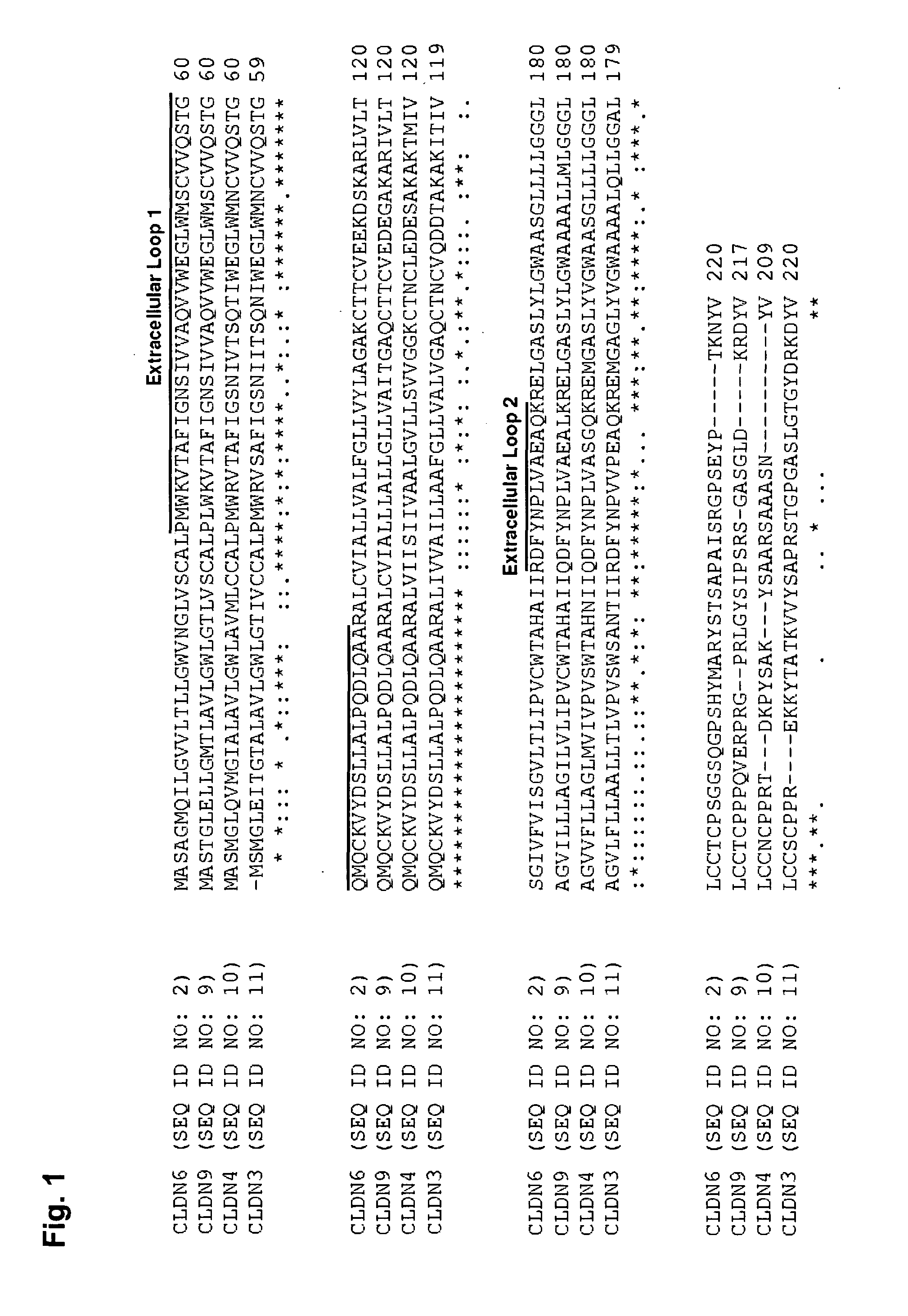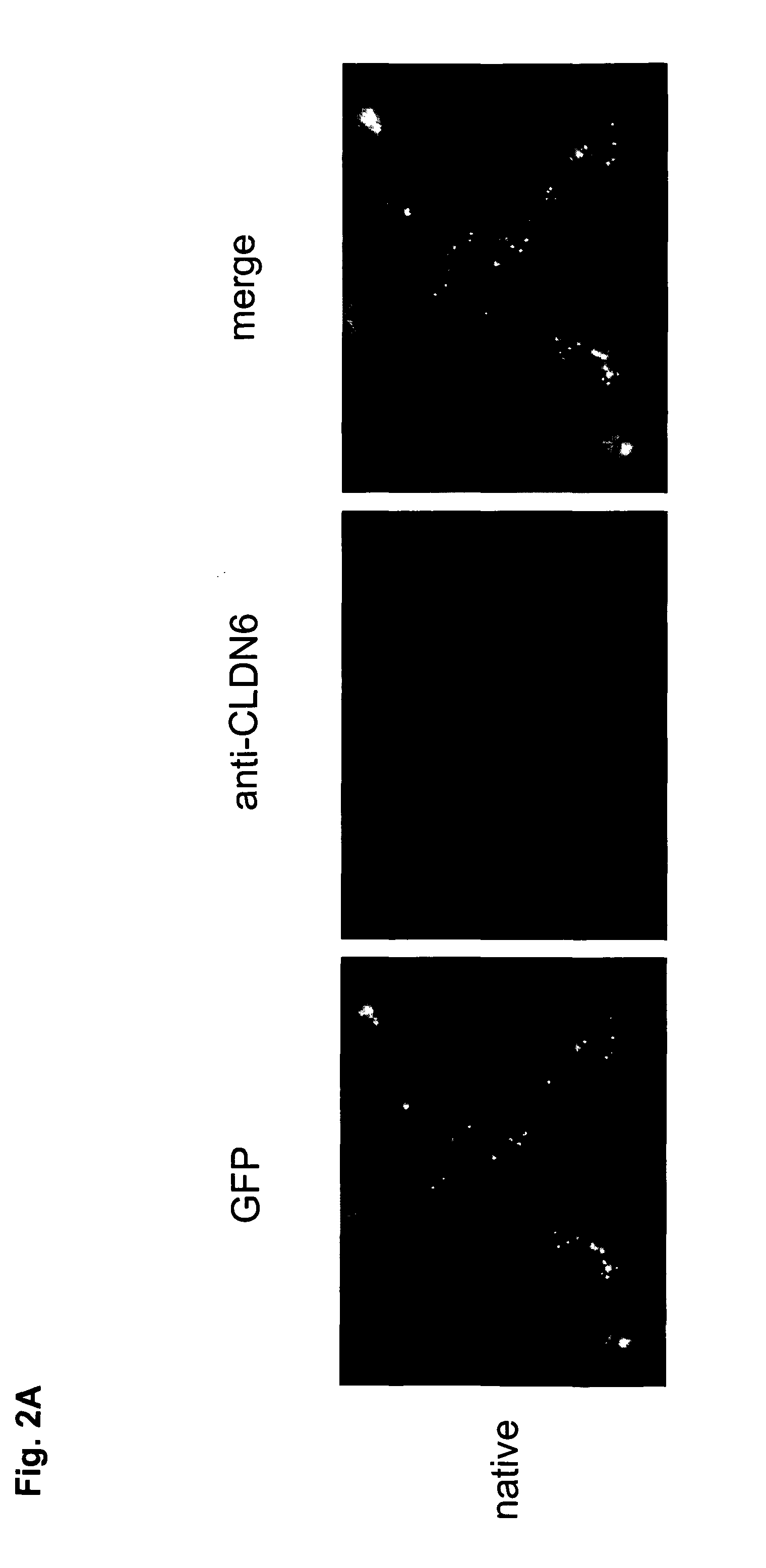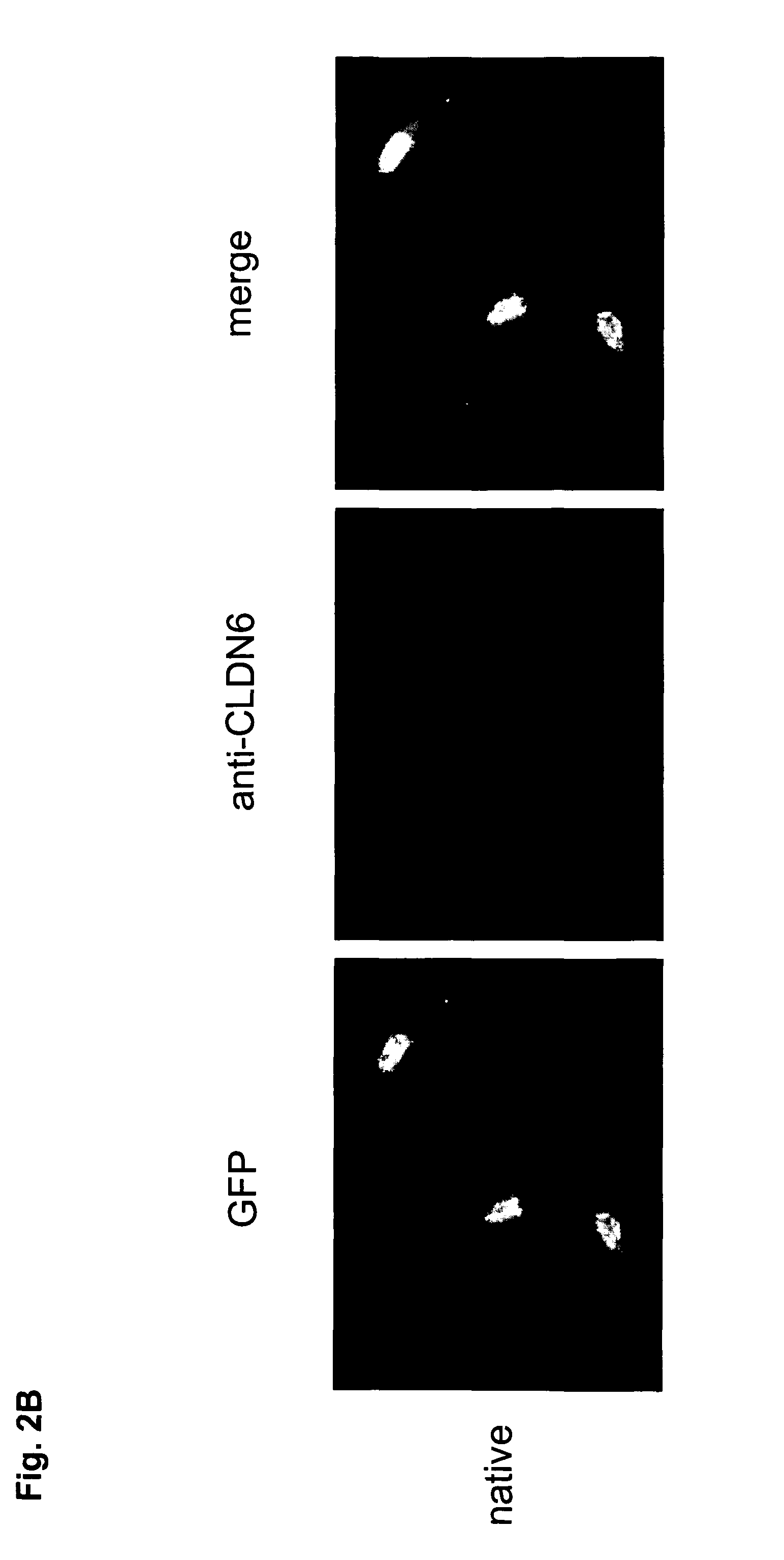Antibodies specific for claudin 6 (CLDN6)
a technology of claudin 6 and specificity, applied in the field of antibodies specific for claudin 6 (cldn6), can solve the problems of not being able to produce antibodies specifically binding to cldn6 and the application of cldn-targeted therapeutics, and achieve the effect of minimizing adverse effects
- Summary
- Abstract
- Description
- Claims
- Application Information
AI Technical Summary
Benefits of technology
Problems solved by technology
Method used
Image
Examples
example 1
Quantification of CLDN6 Expression in Normal Tissues, Cancerous Tissues and Cell Lines Using Real-Time RT-PCR
[0374]Total cellular RNA was extracted from frozen tissue specimens and cancer cell lines using RNeasy Mini Kit (Qiagen), primed with a dT18 oligonucleotide and reverse-transcribed with Superscript II (GIBCO / Lifetech) according to the manufacturer's instructions. Integrity of the obtained cDNA was tested by amplification of p53 transcripts in a 30 cycle PCR. After normalization to HPRT expression of CLDN6 was quantified using ΔΔCT calculation.
[0375]Tissues from three individuals were tested for each normal tissue type. Only trace amounts of CLDN6 transcripts could be detected in normal tissues after 40 cycles of RT-PCR. The only normal tissue slightly exceeding the expression cutoff was placenta.
[0376]In contrast to normal tissues, we found high expression of CLDN6 in samples from ovarian cancer (adenocarcinomas), lung cancer (NSCLC, with highest frequency and expression leve...
example 2
Quantification of CLDN6 Expression in Normal Tissues, Cancerous Tissues and Cell Lines Using Western Blot Analysis
[0377]For Western blot analysis 20 μg of total protein extracted from cells lyzed with Laemmli-lysis buffer was used. Extracts were diluted in reducing sample buffer (Roth), subjected to SDS-PAGE and subsequently electrotransferred onto PVDF membrane (Pall). Immunostaining was performed with polyclonal antibodies reactive to CLDN6 (ARP) and beta-Actin (Abcam) followed by detection of primary antibodies with horseradish-peroxidase conjugated goat anti-mouse and goat anti-rabbit secondary antibodies (Dako).
[0378]Tissue lysates from up to five individuals were tested for each normal tissue type. No CLDN6 protein expression was detected in any of the normal tissues analyzed. In contrast to normal tissues, high expression of CLDN6 protein was detected in samples from ovarian cancer and lung cancer. CLDN6 expression was detected in NIH-OVCAR3 (ovarian cancer), MKN7 (gastric ca...
example 3
Immunohistochemical (IHC) Analysis of CLDN6 Expression in Normal Tissues and Cancerous Tissues
[0379]Paraffin-embedded tissue sections (4 μm) were incubated for 1 hour at 58° C. on a heating plate (HI 1220, Leica). Paraffin was removed from the sections by incubating the slides in Roticlear (Roth) for 2×10 min at RT. Afterwards the sections were rehydrated in graded alcohol (99%, 2×96%, 80% and 70%, 5 min each). Antigen retrieval was performed by boiling slides at 120° C. (15 psi) for 15 min in 10 mM citrate buffer (pH 6.0)+0.05% Tween-20. Directly after boiling slides were incubated in PBS for 5 min. Endogenous peroxidase activity was blocked with 0.3% hydrogen peroxide in MeOH for 15 min at RT. To avoid non-specific binding the slides were blocked with 10% goat serum in PBS for 30 min at RT. Thereafter, the slides were incubated with CLDN6-specific polyclonal antibody (1 μg / ml) (ARP) overnight at 4° C. On the next day the slides were washed with PBS at RT (3×5 min) and incubated wi...
PUM
| Property | Measurement | Unit |
|---|---|---|
| Length | aaaaa | aaaaa |
| Cytotoxicity | aaaaa | aaaaa |
Abstract
Description
Claims
Application Information
 Login to View More
Login to View More - R&D
- Intellectual Property
- Life Sciences
- Materials
- Tech Scout
- Unparalleled Data Quality
- Higher Quality Content
- 60% Fewer Hallucinations
Browse by: Latest US Patents, China's latest patents, Technical Efficacy Thesaurus, Application Domain, Technology Topic, Popular Technical Reports.
© 2025 PatSnap. All rights reserved.Legal|Privacy policy|Modern Slavery Act Transparency Statement|Sitemap|About US| Contact US: help@patsnap.com



